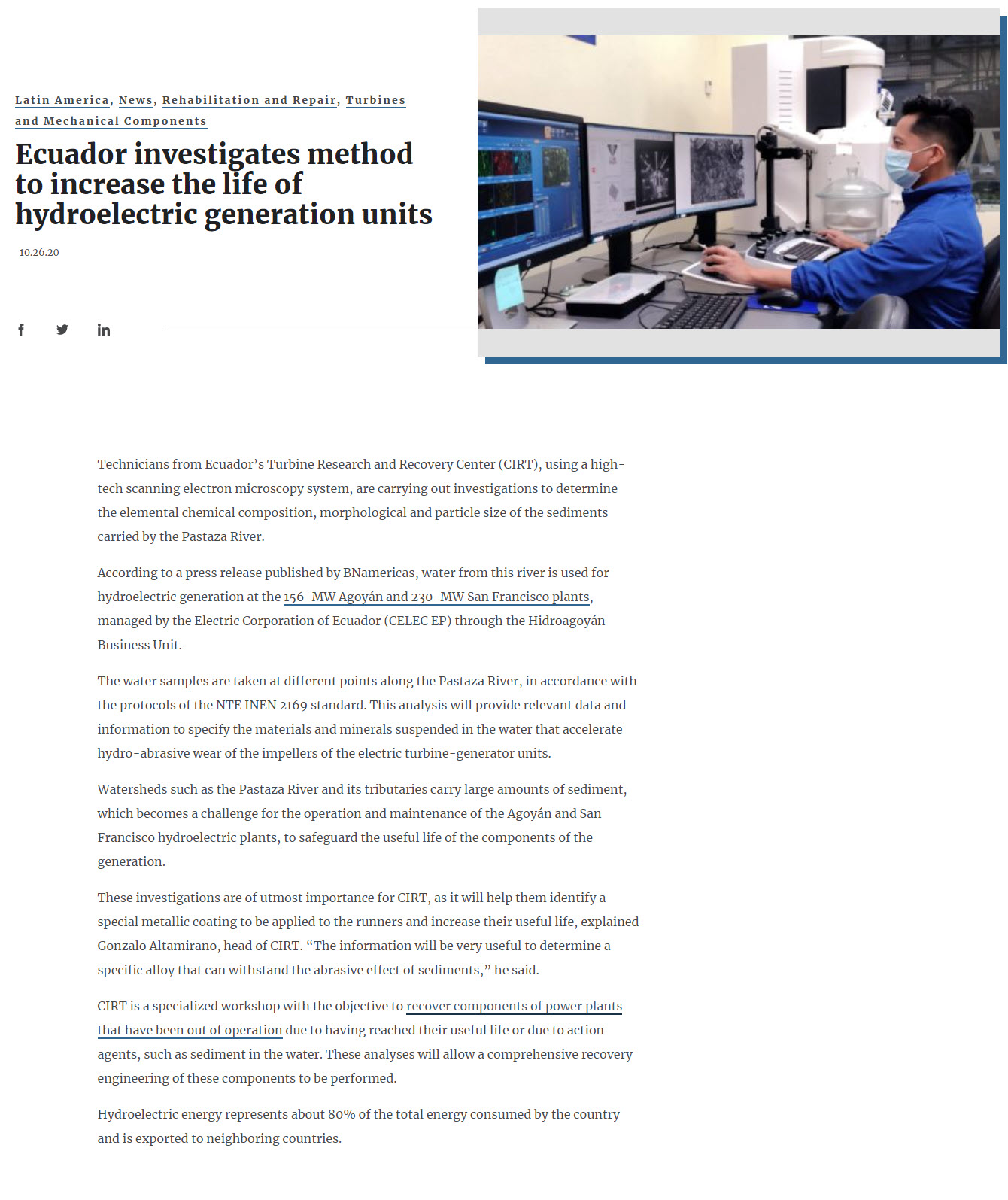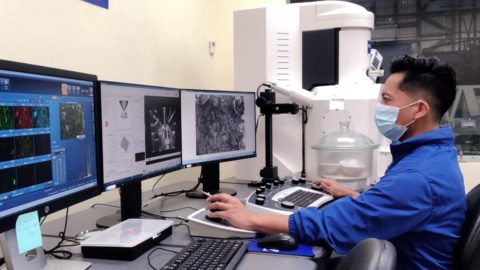Hydro Review • Ecuador investigates method to increase the life of hydroelectric generation units
Technicians from Ecuador’s Turbine Research and Recovery Center (CIRT), using a high-tech scanning electron microscopy system, are carrying out investigations to determine the elemental chemical composition, morphological and particle size of the sediments carried by the Pastaza River.
According to a press release published by BNamericas, water from this river is used for hydroelectric generation at the 156-MW Agoyán and 230-MW San Francisco plants, managed by the Electric Corporation of Ecuador (CELEC EP) through the Hidroagoyán Business Unit.
The water samples are taken at different points along the Pastaza River, in accordance with the protocols of the NTE INEN 2169 standard. This analysis will provide relevant data and information to specify the materials and minerals suspended in the water that accelerate hydro-abrasive wear of the impellers of the electric turbine-generator units.
Watersheds such as the Pastaza River and its tributaries carry large amounts of sediment, which becomes a challenge for the operation and maintenance of the Agoyán and San Francisco hydroelectric plants, to safeguard the useful life of the components of the generation.
These investigations are of utmost importance for CIRT, as it will help them identify a special metallic coating to be applied to the runners and increase their useful life, explained Gonzalo Altamirano, head of CIRT. “The information will be very useful to determine a specific alloy that can withstand the abrasive effect of sediments,” he said.
CIRT is a specialized workshop with the objective to recover components of power plants that have been out of operation due to having reached their useful life or due to action agents, such as sediment in the water. These analyses will allow a comprehensive recovery engineering of these components to be performed.
Hydroelectric energy represents about 80% of the total energy consumed by the country and is exported to neighboring countries.
Fuente: Hydro Review



